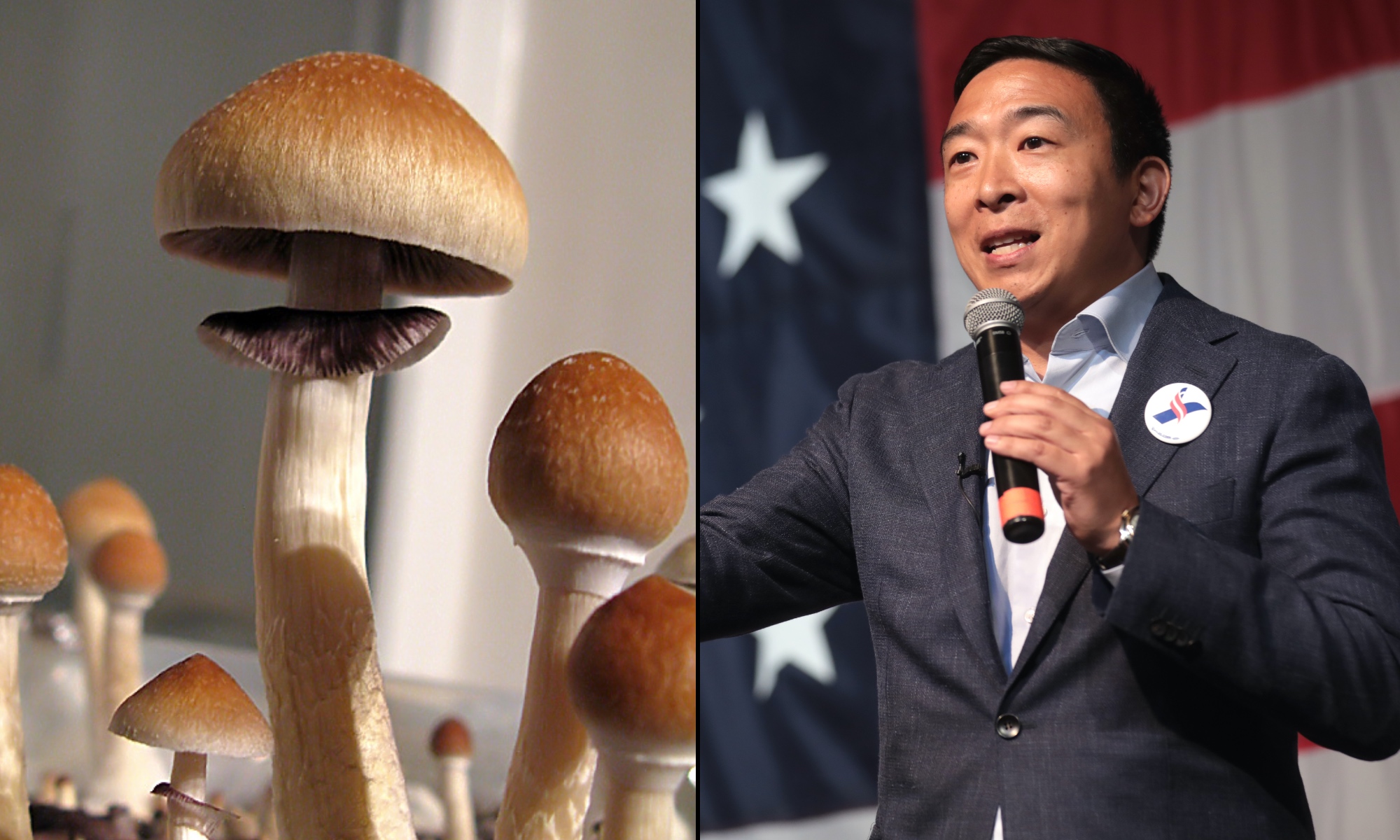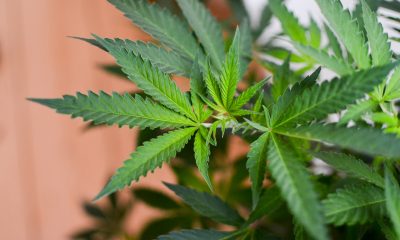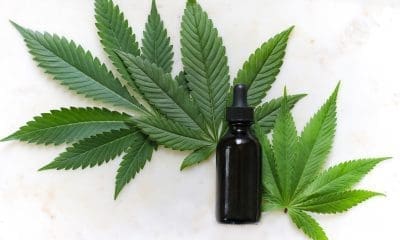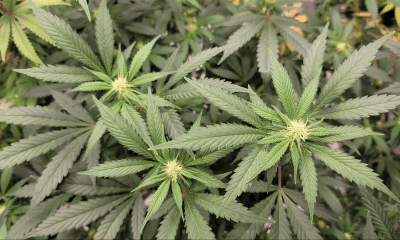Politics
Andrew Yang Urges Legalization Of Psilocybin And Marijuana At New York City Mayoral Forum

Andrew Yang, a former 2020 Democratic presidential candidate who is now running for mayor of New York City, said in a recent campaign forum that he supports legalizing psilocybin and marijuana.
But when pressed on decriminalizing all currently illicit drugs, the entrepreneur and several of his competitors declined to explicitly embrace the broad policy change. Yang did say, however, that he also supports ending the criminalization of people who use certain opioids.
“The war on drugs has been a war on people. We can all see that. I’m for the total decriminalization of cannabis and marijuana, and we have to make sure that communities of color actually participate in the economic gains that are going to result from legalization,” he said. “I’m for the decriminalization of many of these prescription opiates that, frankly, the drug companies have generated billions of dollars of blood money from.”
“If you have these drug companies profiting to this level and then turning around—because what happens is a lot of the times people graduate from those prescription drugs to other forms of opiates, and then we’re criminalizing that behavior even though it was induced by this corporate behemoth that made billions of dollars,” he said. “To me this is not so much like a criminal activity problem as it is a public health problem.”
Asked specifically to clarify where he stands on decriminalizing all currently illicit substances, Yang said he thinks law enforcement “should not be pursuing people for possession” and then pivoted, saying “I’m for legalization of psilocybin mushrooms, and I’m open to the public policy impact of legalizing other substances.”
There seemed to be a reluctance among most of the New York mayoral contenders who participated in the forum, which was hosted by VOCAL-NY, to going on the record and giving a clear answer to the decriminalization question. Most appeared more comfortable simply backing marijuana reform and stating platitudes about treating drugs as a health issue.
But Dianne Morales, a former public school teacher, did say after being asked to clarify her initial response on decriminalization that she agrees “we need to we need to move towards that in response to the war on drugs.”
Brooklyn Borough President Eric Adams, meanwhile, said that “I don’t support” drug decriminalization, though he is in favor of legalizing marijuana for adult use.
“You guys know I’m ex po-po, so I have a different view on some of these things,” he said, referring to his prior experience as a law enforcement officer. “Although I was arrested and beat by police officers, I also know the impact of drugs. I support 100 percent legalization of marijuana, but anytime we open the shops, we need to make sure that people who were demonized and criminalized, they are able to make their lives whole again.”
New York City Comptroller Scott Stringer, another candidate, said in response to the decriminalization question that “I think we have to come to terms with the fact that, when people have drug issues, the truth of the matter is, this is not when you take the handcuffs out.”
Maya Wiley, a civil rights activist who also served as counsel to current New York City Mayor Bill de Blasio, said “we have to have a public health approach to this issue.”
“It is fundamentally a public health problem, and we have to develop and build out our capacity to respond with that way,” she said.
“I believe in putting the public back in public safety so that we’re bringing people along and talking and working with community in ways that support everyone’s education around safety and ensuring safety,” she said. “But it fundamentally has to be a public health approach, and that also means alternatives to incarceration if someone’s getting caught up in the system, because they have a public health issue.”
The forum hosts also asked the candidates about safe consumption sites, where people could use illicit drugs in a medically supervised environment to reduce overdose deaths and provide resources for substance misuse treatment.
“I advocated for overdose prevention centers nationally because of the data that you just cited, which is that they save lives,” Yang said. “The purpose of everything we do should be to save lives, and I know that, to some extent, this has been a political issue because people are not excited about having an overdose prevention center in their neighborhood, but they wouldn’t object to having a hospital in the neighborhood.”
“This to me has the exact same purpose, which is to keep people alive—make sure that brothers and sisters and mothers and fathers can see their families again,” he said.
Shaun Donovan, former secretary of the U.S. Department of Housing and Urban Development under the Obama administration, said that while he has “concerns” about decriminalizing all drugs, he feels “we absolutely need to take a different approach to ensuring that narcan and all of our responses—safe use centers—are fundamentally reorienting our approach.”
Stringer said there’s a “need to provide places where people can get the services they need, the help that they need,” adding that the approach can’t be based on a model of incarceration. “I believe that safe consumption and overdose prevention centers are the future, we have to do that.”
Biden Worried Endorsing Legal Marijuana Would Lead To Trump Win, Insider Says
Photo element courtesy of Gage Skidmore.
















